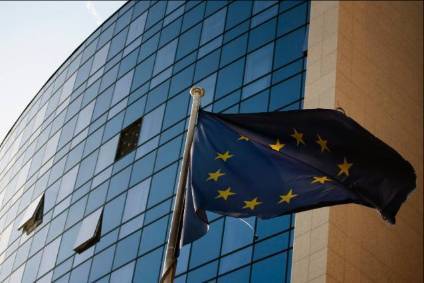
The European Commission – the executive branch of the EU – has now opened an in-depth investigation to assess the proposed FCA-PSA merger. A statement from Brussels confirms recent reports.
The EC said it is concerned that the proposed transaction may reduce competition with respect to light commercial vehicles (vans) below 3.5 tonnes (Gross Vehicle Weight) in the European Economic Area (EEA) and, more specifically, in 14 EU Member States and the UK.

Discover B2B Marketing That Performs
Combine business intelligence and editorial excellence to reach engaged professionals across 36 leading media platforms.
Executive Vice-President Margrethe Vestager, responsible for competition policy, said: “Commercial vans are important for individuals, SMEs and large companies when it comes to delivering goods or providing services to customers. They are a growing market and increasingly important in a digital economy where private consumers rely more than ever on delivery services. Fiat Chrysler and Peugeot SA, with their large portfolio of brands and models, have a strong position in commercial vans in many European countries. We will carefully assess whether the proposed transaction would negatively affect competition in these markets and ensure that a healthy competitive landscape remains for all the individuals and businesses relying on commercial vans for their activities.”
The Commission noted that in many countries, either PSA or FCA is already the market leader in light commercial vehicles, and the merger would remove one of the main competitors.
The EC also said the parties appear particularly strong in the smaller vans segment and noted that there are fewer competitors in vans than in passenger cars, and that in most of the countries it is concerned with, all competitors would be significantly smaller than the merged entity.
The Commission’s preliminary investigation also shows that PSA and FCA have historically competed head-to-head for vans in a number of EU Member States and price positioned their vans similarly. The merger would thus remove an important competitive constraint for both of them.
In addition, the market for light commercial vehicles seems to be characterised by relatively high barriers to entry and expansion, for example, the necessity to have a sufficiently large service network which is not quick and easy to set up. New entry seems unlikely on any significant scale, it said.
The Commission will now carry out an in-depth investigation into the effects of the proposed transaction to determine whether it is likely to significantly reduce effective competition. The Commission now has 90 working days, until 22 October 2020, to take a decision. The opening of an in-depth investigation does not prejudge the outcome of the investigation, it said.
In terms of process, the Commission said that the ‘vast majority of notified mergers do not pose competition problems and are cleared after a routine review’. Moreover, from the moment a transaction is notified (in the case of FCA-PSA, 8 May, 2020) the Commission generally has 25 working days to decide whether to grant approval (Phase I) or to start an in-depth investigation (Phase II).
Last month, FCA and Exor chairman John Elkann said the terms of the FCA-PSA merger agreement were unchanged and that the rationale for the merger was ‘stronger than ever’ now that the COVID-19 pandemic adds to the list of challenges facing the automotive industry. He also said that preparatory work for the merger was on schedule for completion by early 2021 as initially announced.
The planned merger would create the 3rd largest global car company by revenues and 4th largest by volume. The new company will be led by current PSA chief Carlos Tavares and a big part of the rationale behind the move is to have the greater scale and resources to be at the forefront of the long-run CASE megatrends that are impacting mobility and the transport industry.






